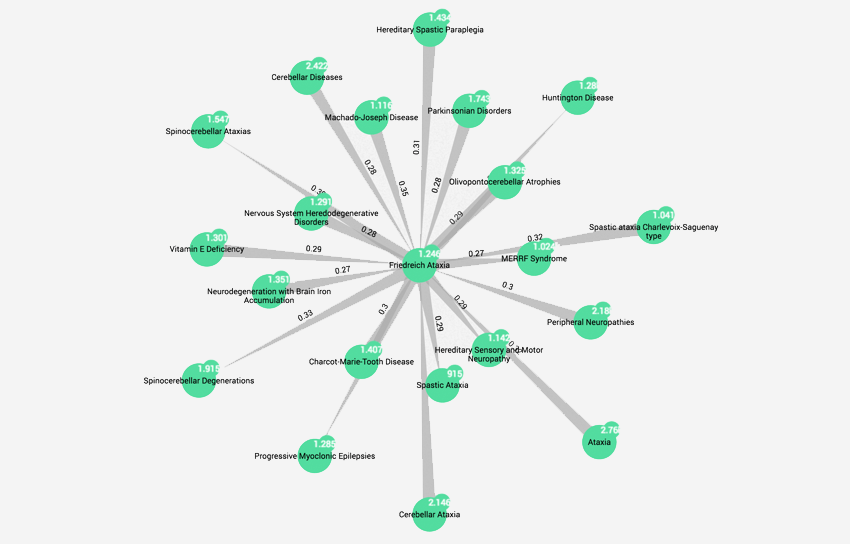
-
Addressing common challenges with Knowledge Graphs


In this blog we describe the pivotal role of semantic enrichment in the creation of effective Knowledge Graphs, and illustrate how semantic Knowledge Graphs help answer complex scientific questions.
Read -
Using the SciBite knowledge graph to explore biomedical literature
“Do you have a pre-made knowledge graph covering biomedical literature?” is a question we often hear at SciBite. The answer is yes we do, and in this blog post we’ll describe what our SciBite Knowledge Graph is, its content and the types of questions it can answer.
Read -
What is a Semantic Knowledge Graph?
At a time where more and more of our customer projects revolve around knowledge graph creation, we thought it was about time we blogged on what exactly a knowledge graph is and explain a bit more about how our semantic enrichment technology is being used to facilitate the production of such a powerful data model.
Read -
The pivotal role of semantic enrichment in the evolution of data commons
In this blog post, discover how Pfizer have integrated SciBite’s semantically enriched vocabularies into their Data Commons project, which has the goal of enabling scientists to develop and refine hypotheses by investigating correlations between genetic and phenotypic data.
Read -
Of burns and bums: Machine Learning surprises!
As many of our regular visitors will know, the focus of our work here at SciBite is unlocking the knowledge held in the vast amount of biomedical text researchers have access to. Sometimes this yields well, interesting, results...
Read -
Drug repurposing, rare diseases and semantic analytics
In this blog we cover how to look potentially reduce the cost of and speed up the repurposing pipeline.
Read -
Exploring mechanistically-related diseases through shared phenotypic profiles
Disease detective part 2: Today, we’ll look at a fresh way of enabling scientific researchers, either in pharmaceutical R&D or in medical institutes to deepen their investigations and consider new links.
Read -
The Relationship Game – Knowledge Graphs
Scientific knowledge can be represented as relationships between things. Thousands or millions of such relationships make a knowledge graph or network analysis. SciBite technology enables extraction of these relationships, and in doing so, can uncover knowledge that might otherwise have remained hidden
Read
How could the SciBite semantic platform help you?
Get in touch with us to find out how we can transform your data
© Copyright © 2024 Elsevier Ltd., its licensors, and contributors. All rights are reserved, including those for text and data mining, AI training, and similar technologies.








